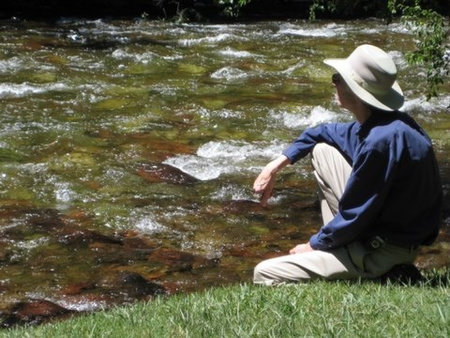Nobody wants to know how hard it is. They want to know what fun it is. So let’s skip the hours—months—years staring at a computer screen trying to understand what the plot needs to find its way forward, what the characters want, and what they have to overcome to get it. Skip the feeling that this is way too hard for you, that you should have stuck to the easy stuff: the books of poetry, literary criticism, the hundreds of articles you thought were so difficult. They were a snap compared to writing a really good children’s book.
I’ve now written eight. You’d think it would get easier. Yes, you’d think that.
The latest is called A Bitter Magic, a mystical mystery about a girl named Cisley, whose mother disappears during a magic act. When I started the book, that’s all I knew. Was the mother dead? In hiding? Would she ever reappear? Even well into the writing, I didn’t know. Before long, I was lost amid shifting labyrinths, bands of gypsies, and a closet of whispering ball gowns. Things were getting out of hand. The book was impossible!
But then, all my books feel impossible to write. “That’s just your process,” my wife tells me. “You always say that.” She’s right, and she always talks me through it, brainstorms with me on long walks, comes up with my best ideas, and makes me believe that maybe the book is not quite impossible after all.
That’s when I begin to realize that despite my complaints I’m actually having fun. It’s fun to get to know my characters, from Cisley’s mad uncle (The Amazing Thummel, Illusionist), to the very peculiar Miss Porlock, to Cisley’s pet, a talking lobster named Elwyn. (Or does he only seem to talk? Hmm.)
The truth is, I conspire to make things hard, too hard, for myself—as if a book is worth writing only if it strikes me as quite impossible. I paint myself into a corner and then see how I will get out of the room. Call it the Houdini complex.
I guess that’s my kind of fun.

